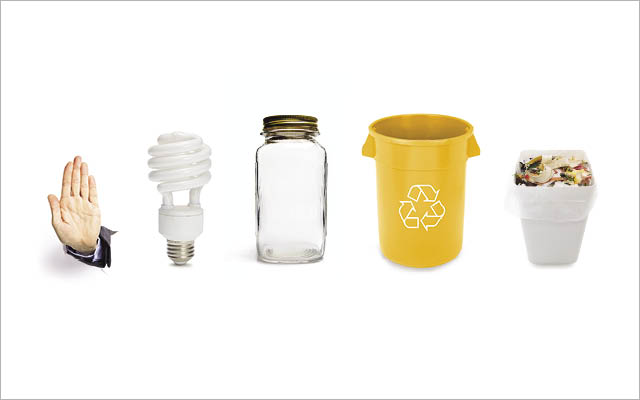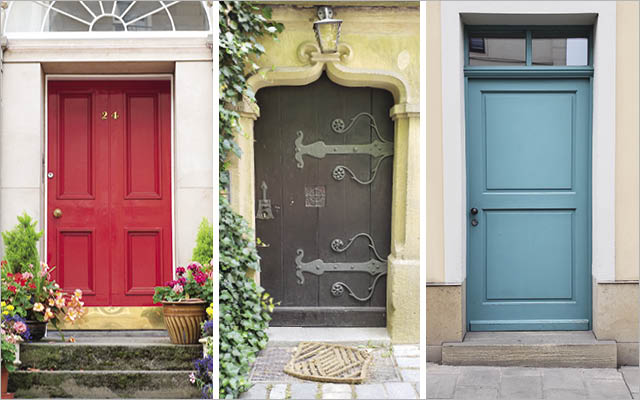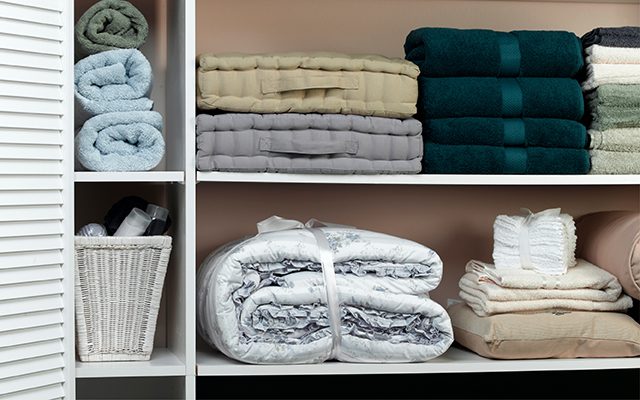Since 2008 Joshua Becker and his family have focused on intentionally living with fewer possessions, something he calls “rational minimalism.” The best-selling author of The More of Less: Finding the Life You Want Under Everything You Own argues that minimalism can transform people’s lives by helping them align and optimize their priorities through removing things that distract from them.
Minimalist principles can be applied to our belongings, schedules, and even the words we use. “There are countless opportunities to remove distractions from our life, anything that is keeping us from fulfilling our greater purpose,” explains the founder of the Becoming Minimalist blog.
Becker argues that downsizing the items in your home can improve your relationships, too. “I’ve said that getting rid of unnecessary objects enables the objects you do keep to gain in significance; their beauty, usefulness, and originality are more easily appreciated,” he writes in his latest book, The Minimalist Home: A Room-by-Room Guide to a Decluttered, Refocused Life. “But I would even go so far as to say that the people in a minimized home stand out more as valuable than they do in a cluttered, overcrowded house. Somehow we can see each other better when not distracted by things. We are drawn to one another and are there for one another.
“The names of the living room and family room are revealing,” he explains. “Life is supposed to take place there. The family is supposed to be formed there. So, minimize the public–private spaces in your home, and watch how love wells up within them.”
Q&A With Joshua Becker
Experience Life | What is minimalism? How is it different from decluttering?
Joshua Becker | Minimalism, for me, is the intentional promotion of the things we most value and the removal of anything that distracts us from it. While there is certainly some overlap with decluttering, minimalism takes a harder look at possessions.
Decluttering is typically considered as removing “clutter” from our living spaces, but minimalism asks a further question: What do I actually need to fulfill my purpose in life? And how can I remove everything else permanently?
EL | What made you decide to intentionally downsize your possessions? How has the decision changed your life?
JB | It was a short conversation with my neighbor, who introduced me to the lifestyle. I had spent a morning cleaning my garage, and my 5-year-old son had spent the morning playing alone in my backyard.
When I began commenting to my neighbor about the time and energy I had just spent caring for my possessions, she said, “That’s why my daughter is a minimalist; she keeps telling me I don’t need to own all this stuff.”
In that moment, I saw for the first time not just how my possessions were not making me happy, but even worse, how they were distracting me from the things that did.
EL | What are some simple ways we can get started “de-owning” items?
JB | Start simple. Too many people get caught up wondering how to declutter their most difficult items (books, sentimental items, their partner’s stuff, etc.) or all their stuff at the same time. But in actuality, the process should begin much simpler — with the easy stuff.
I would encourage anybody to grab a bag and walk around their house filling it with anything they don’t even want in their home anymore. It will likely fill up quicker than you think. The next day, grab another bag and repeat. Eventually, you will begin to experience the joy and freedom of owning less. Use that motivation to find even more things to remove.
EL | What are the benefits for your kids in having fewer toys? Is it challenging for them to live a minimalist lifestyle?
JB | Just like adults, unique personalities respond differently to the invitation of minimalism. Kids are no different. Certainly having kids can make minimalism more difficult, but they also make it more important.
Our kids are watching us and learning from us every day. Parents who live focused on chasing and accumulating material possessions produce children who do the same. On the other hand, kids who learn boundaries, and the opportunity to find freedom and contentment within them, become adults who find happiness there.
EL | You talk a lot about minimalism, including becoming “unbusy.” What are some simple ways we can declutter our schedules?
JB | I think the goal is to bring greater intentionality into our schedules rather than following the flow of society or the people around us. Take a hard look at your calendar and evaluate which commitments are bringing you closer to your greatest goals in life and which are not. Remove the latter.
The Minimizing Checklist
Before you begin minimizing your home, Becker suggests, spend some time thinking about the answers to these questions and discussing them with anyone you share the space with:
- What are your purposes for your home?
- What are your purposes for your life after you’ve minimized your home?
If you don’t know the answers immediately, think about them as you go through the process of reducing the number of items in your home and the answers will become clearer. “At the same time that minimalism frees up physical space in your home, it will free up ‘mind space’ for you to reflect on and develop these purposes,” Becker says.
He suggests asking these questions when you’re ready to minimize a shared space in your home to maximize togetherness:
□ Is this space calming? Does it reduce stress?
□ Does this space encourage conversation?
□ Is this space inviting to my family? To my friends?
□ Is this space easy to maintain?
□ Does this space highlight what is important to our family?
□ Does this space encourage my family to live life to the fullest?
□ Does this space promote our family’s values?
Reprinted from The Minimalist Home: A Room-by-Room Guide to a Decluttered, Refocused Life. Copyright © 2018 Becoming Minimalist. Published by WaterBrook, an imprint of Penguin Random House, LLC.
This originally appeared as “The Minimalist Life” in the July/August 2019 print issue of Experience Life.




This Post Has 0 Comments